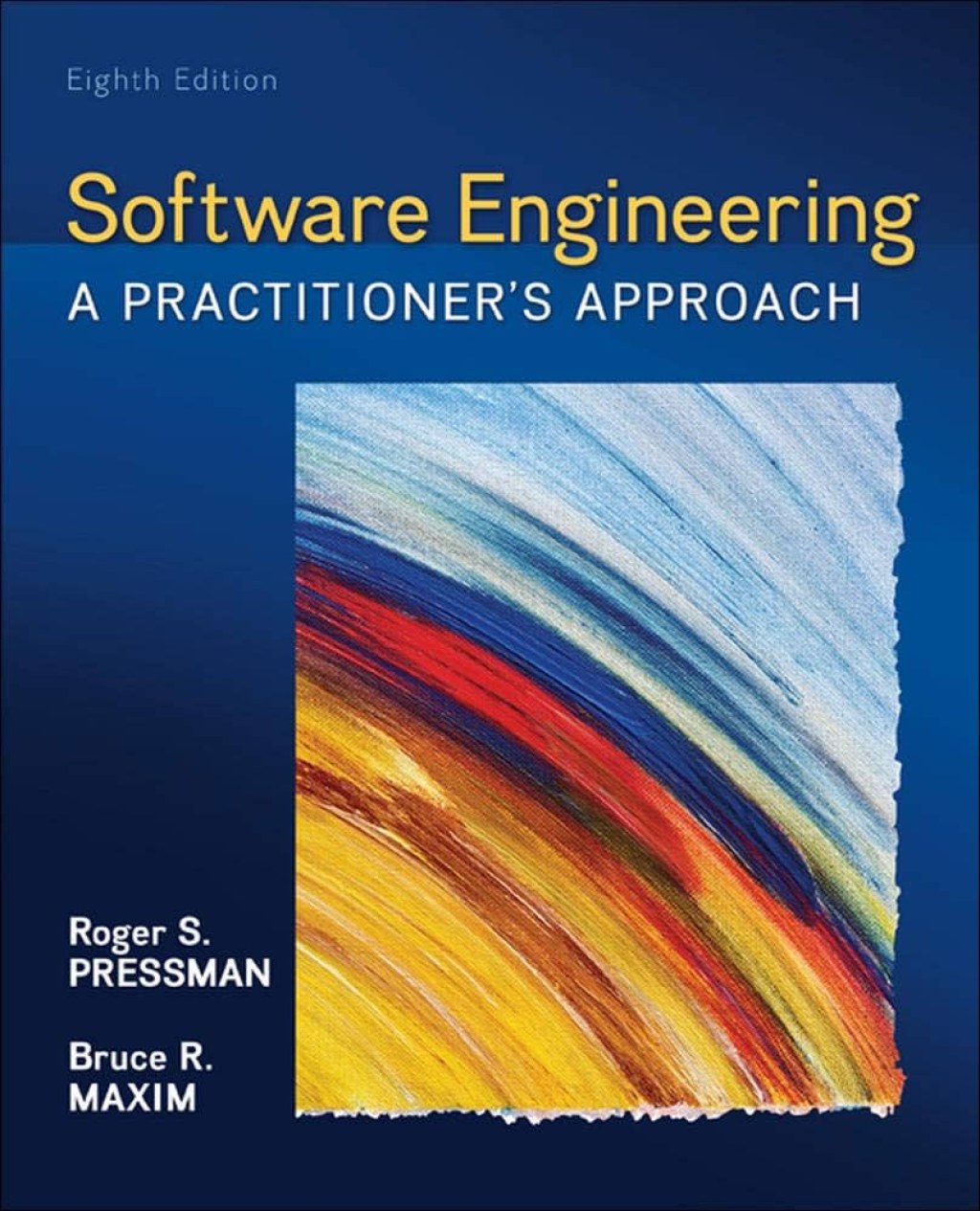Unlock The Power Of Software Engineering: Explore The Cutting-Edge 8th Edition Now!
Software Engineering 8th Edition: the Ultimate Guide for Modern Developers
Introduction
Greetings, friends!
Welcome to this comprehensive guide on the 8th edition of software engineering. In today’s rapidly evolving digital landscape, software engineering plays a crucial role in developing reliable and efficient software solutions. This edition is specifically tailored for modern developers, equipping them with the knowledge and skills needed to excel in the field.
1 Picture Gallery: Unlock The Power Of Software Engineering: Explore The Cutting-Edge 8th Edition Now!

Software engineering encompasses the systematic design, development, testing, and maintenance of software systems. It involves the application of engineering principles and methods to create software that meets the desired requirements and delivers the intended functionalities. The 8th edition of software engineering builds upon the foundation of previous editions, incorporating the latest advancements and best practices to address the evolving challenges and demands of the industry.
In this guide, we will delve into the various aspects of software engineering, including its definition, key concepts, benefits, and limitations. We will explore the what, who, when, where, why, and how of software engineering, providing you with a comprehensive understanding of this ever-evolving discipline.
The Basics
What is software engineering? Software engineering is a discipline that combines engineering principles and techniques with computer science to develop high-quality software products. It involves a systematic approach to software development, encompassing requirements gathering, design, coding, testing, and maintenance.

Image Source: media-amazon.com
Who should study software engineering? Software engineering is essential for anyone involved in software development, including programmers, developers, project managers, and quality assurance professionals. By understanding software engineering principles, individuals can contribute to the successful delivery of reliable and efficient software solutions.
When was software engineering first introduced? The concept of software engineering emerged in the late 1960s as a response to the growing complexity of software systems. The need for a disciplined and systematic approach to software development led to the establishment of software engineering as a distinct field.
Where is software engineering applied? Software engineering is applied in various domains, including web and mobile application development, embedded systems, artificial intelligence, and data science. It is a fundamental discipline that underpins the development of software solutions across industries.
Why is software engineering important? Software engineering is crucial for ensuring the reliability, efficiency, and maintainability of software systems. It enables the development of high-quality software products that meet user requirements and deliver value to businesses. Without software engineering, software development projects would face significant challenges and risks.
How is software engineering practiced? Software engineering is practiced through a series of well-defined processes and methodologies. It involves requirements analysis, software design, coding, testing, and maintenance. Various software development methodologies, such as Agile and Waterfall, provide frameworks for managing the software engineering process.
Advantages and Disadvantages
Advantages of software engineering:
1️⃣ Enhanced software quality: Software engineering promotes the use of standardized processes and best practices, resulting in higher-quality software products.
2️⃣ Increased productivity: By following systematic approaches and utilizing tools and frameworks, software engineering improves development efficiency.
3️⃣ Cost-effective software development: Software engineering helps identify and eliminate errors early in the development process, minimizing costly rework.
4️⃣ Improved project management: Software engineering methodologies provide a structured framework for managing software development projects, ensuring timely delivery and effective resource allocation.
5️⃣ Collaboration and teamwork: Software engineering encourages collaboration among team members, fostering better communication and coordination.
Disadvantages of software engineering:
1️⃣ Time-consuming: Following the software engineering process can be time-consuming, especially in large-scale projects.
2️⃣ Inflexibility: Rigid adherence to software engineering methodologies may hinder adaptability to changing project requirements.
3️⃣ Overhead costs: Implementing software engineering practices may require additional resources and investment.
4️⃣ Learning curve: Software engineering principles and methodologies may require a learning curve for developers who are not familiar with them.
5️⃣ Unrealistic expectations: Overemphasis on standardized processes may lead to unrealistic expectations and rigidity in project management.
Frequently Asked Questions (FAQs)
1. Is software engineering only applicable to large-scale projects?
No, software engineering principles are applicable to projects of all sizes. The systematic approach of software engineering can benefit both small and large-scale projects.
2. Can I practice software engineering without formal education?
While a formal education in software engineering is beneficial, individuals can still practice software engineering principles and methodologies through self-learning and practical experience.
3. What programming languages are commonly used in software engineering?
The choice of programming languages in software engineering depends on various factors, including project requirements, target platform, and developer preferences. Commonly used programming languages include Java, C++, Python, and JavaScript.
4. How can I enhance my software engineering skills?
Continuous learning and practical experience are key to enhancing software engineering skills. Engaging in projects, attending workshops, and exploring new technologies can help expand your knowledge and expertise in the field.
5. Are software engineering and computer science the same?
While software engineering and computer science are closely related, they are distinct disciplines. Computer science focuses on the theoretical foundations of computing, while software engineering emphasizes the practical aspects of developing software solutions.
Conclusion
In conclusion, software engineering is a vital discipline for modern developers seeking to create reliable, efficient, and scalable software solutions. By applying the principles and methodologies of software engineering, developers can ensure the successful delivery of high-quality software products that meet user requirements and drive business value.
Now is the time to embark on your software engineering journey. Dive into the 8th edition of software engineering, equip yourself with the latest knowledge, and embrace the ever-evolving world of software development.
Remember, success in software engineering lies not only in technical expertise but also in continuous learning, collaboration, and a passion for innovation. We wish you all the best on your software engineering endeavors!
Final Remarks
Software engineering, with its systematic approach and emphasis on quality, plays a crucial role in shaping the modern digital landscape. As technology continues to advance at an unprecedented pace, the demand for skilled software engineers will only grow.
However, it is important to note that software engineering is not a one-size-fits-all solution. Each project and organization may have unique requirements and constraints that require tailored approaches. It is essential to adapt and customize software engineering practices to meet specific needs.
Additionally, while the 8th edition of software engineering provides a comprehensive guide, it is important to stay updated with the latest advancements and trends in the field. The software development landscape is constantly evolving, and continuous learning is essential for staying relevant and driving innovation.
Embrace the challenges and opportunities that software engineering presents. The journey may be complex, but the rewards are immense. Happy coding!
This post topic: Programming

